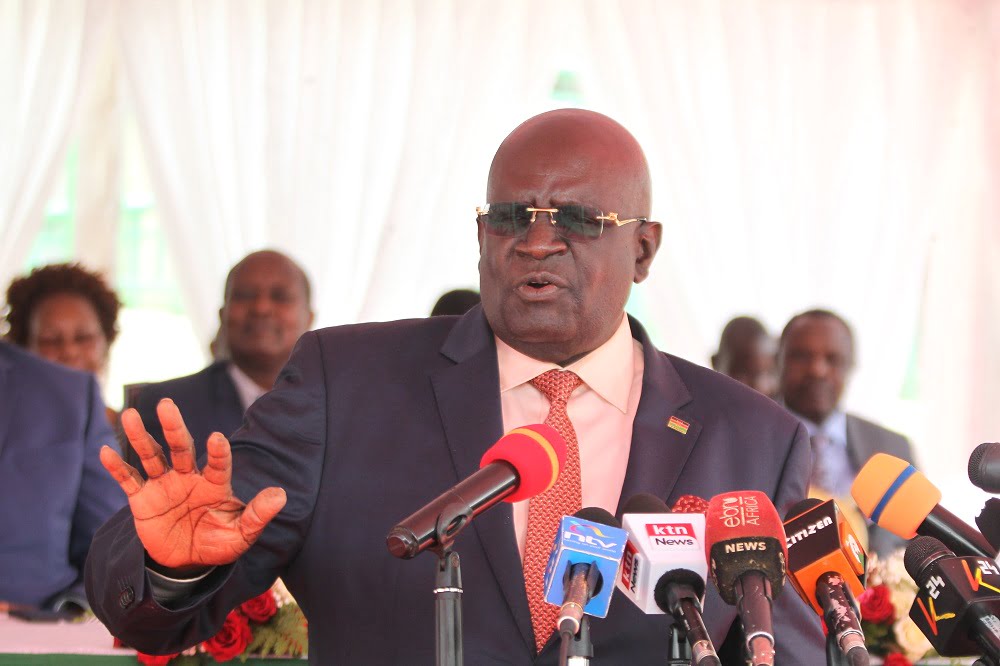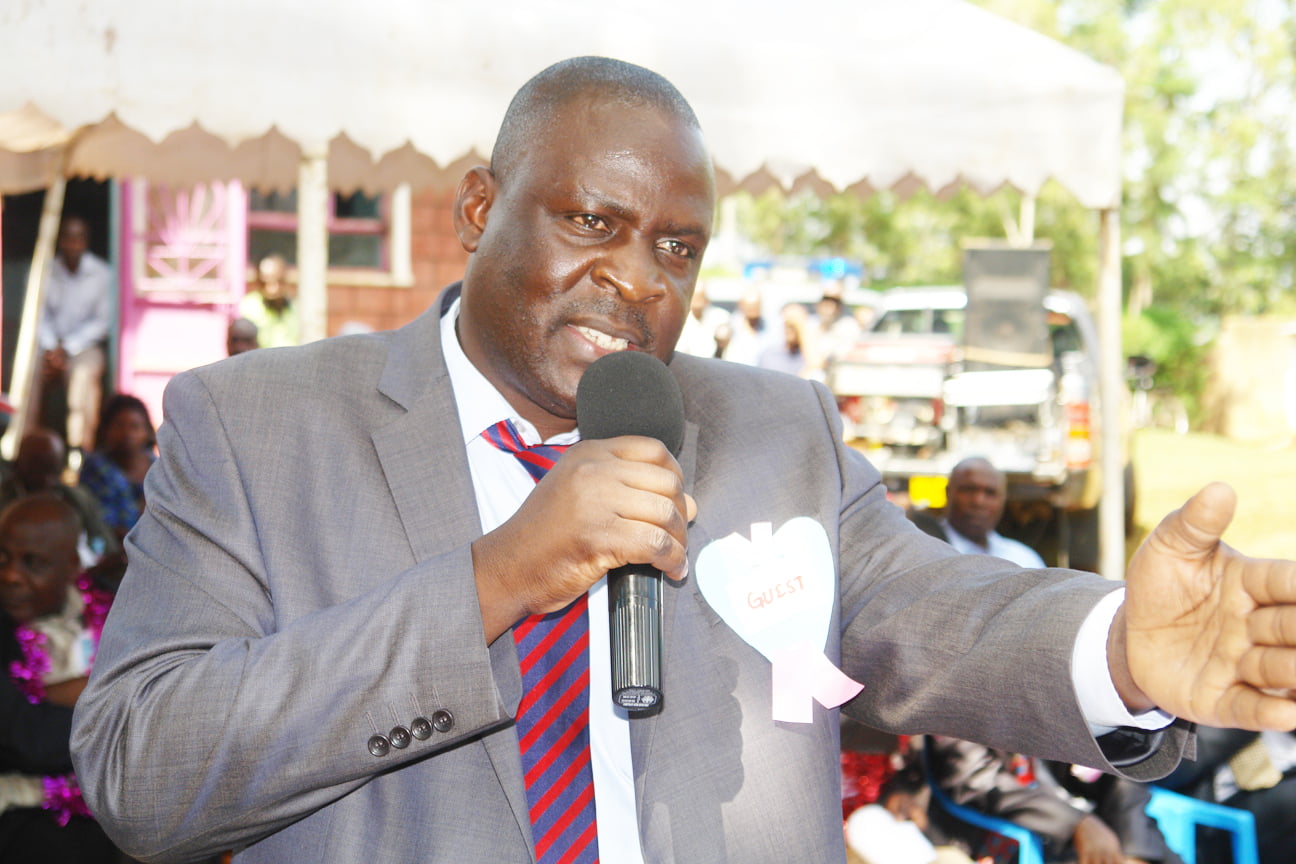The Cabinet Secretary (CS) for Education Prof George Magoha, in his address to the nation when he released the 2021 KCSE results, pointed out some major highlights of his time at the helm of the ministry. He was appointed to the post in March 2019, and has since overseen a transformation that is seen by many as visionary and revolutionary. Here are some of the key milestones that have changed the education sector in Kenya for good.
Reforms
Prof Magoha noted that change had been a key element of dispensation in the three years that he had been given the opportunity to serve. Since 2019, he noted, there had been a concerted effort by a host of stakeholders with a deep interest in the child.
He singled out Interior and Coordination of National Government CS Dr Fred Matiang’I for the original idea of reforms when he was in charge of the education docket. He said he continued to offer support to the sector by providing security and information for the betterment of education.
Besides the accolades to the interior ministry, Prof Magoha also commended Dr Amina Mohammed for following up on the footsteps of Matiang’I, the late Hon Joseph Nkaiserry for teaming up with Joseph Mucheru of ICT to ensure digitization of processes at KNEC and the ministry, Dr Belio Kipsang’ for initiating key reforms in the early learning and basic education sub-sector, and Dr Nancy Macharia for her consistency in keeping TSC up to speed with the reforms in the sector.
He also lauded Dr Mercy Karogo, the immediate former KNEC CEO who implemented the reforms at the examination body, without whose cooperation the changes would have been in vain. Alongside her, he praised the KNEC Council and ministry officials for giving their support to the reform agenda he had brought.
In this light, he encouraged his subsequent successors to build on the successes of his team to ensure the integrity of national examinations. He said no child should ever fail to sit national examinations for lack of money, for there is no requirement to pay any fee in the first place. So far, he said, the government had spent Sh.27.7 billion on the examinations since the reforms started in 2016, distributed between KCPE (Sh.5.5B) and KCSE (22B).
Prof Magoha touched on the delicate matter of exam malpractice, urging the media to verify their information before relaying it to the public to ensure fairness and objectivity as it closely related to integrity and justice. He said he had already planned for the administration and security of the Grade 6, Class 8 and Form 4 exams to come later in the year, urging KNEC to register all candidates.
He summarized the reforms in his short stint as:
- Enrolment and transition; the Sh.1,420 capitation per child each year in primary school has actualized the right to education, which has so far amounted to Sh.94.95 billion in public primary schools, and Sh.3.44 billion in Special Needs Education (SNE) schools. He further noted that there was close monitoring of transitions in every class, up to the moment they join secondary school under the 100 percent transition policy. As per this, there was a sharp increase from 1.3 million children joining secondary school in 2008 to 3.5 million in 2022. He urged stakeholders to invest more heavily in sub-county schools, which have been performing exemplarily well, to even increase enrolment.
- Free secondary school; the government has raised capitation for every child in public secondary school to Sh.22,244 up from Sh.12,870 initially, which has so far reached Sh.325.67 billion in secondary schools and 1.52 billion in SNEs since 2013.
- Elimu scholarship; needy and vulnerable students have been awarded full scholarships to join secondary school, with 8,000 from urban informal settlements and rural arid and semi-arid areas benefitting. Another 9,000 is planned for the new entrants to form one this year.
- Medical scheme; the government has initiated a medical scheme called Edu-Afya Medical Insurance Scheme, to which it contributes Sh.4B annually.
- Competency-Based Curriculum; the CBC reforms came in 2016, with the chief aim of identifying competencies of learners and pursuing them as practical learning takes root as opposed to rote learning. 229,000 teachers have also been trained on the same, with plans underway to train more for junior secondary.
- CBC classrooms; 6,470 have been completed, while 3,530 are to be built between May and August to reach the target of 10,000.
- Digital infrastructure; internet connectivity, electricity, digital content and digital devices have all been enhanced to focus more on digital learning as well as capacity building for teachers along the same idea.
- Text books; the government has spent Sh.33.38 billion on text books to cover every child since 2018 in both public primary and secondary schools, achieving a ratio of 1:1.
- Classroom desks; 359,550 and 262,707 desks have been distributed to primary and secondary schools respectively in 2020/2021 Financial Year alone, amounting to Sh.1.9 billion.
- Hygiene; school girls have been given Sh.3.017 billion worth of sanitary towels since 2018, making school attendance regular and comfortable.
- Feeding; in partnership with the UN World Food Programme (UNFP), the government has been able to give free food to children in informal settlements and ASAL regions of the country.
Amidst all these achievements, the CS said, they had overcome the Covid-19 challenges that had threatened to completely paralyze learning from 2020.






